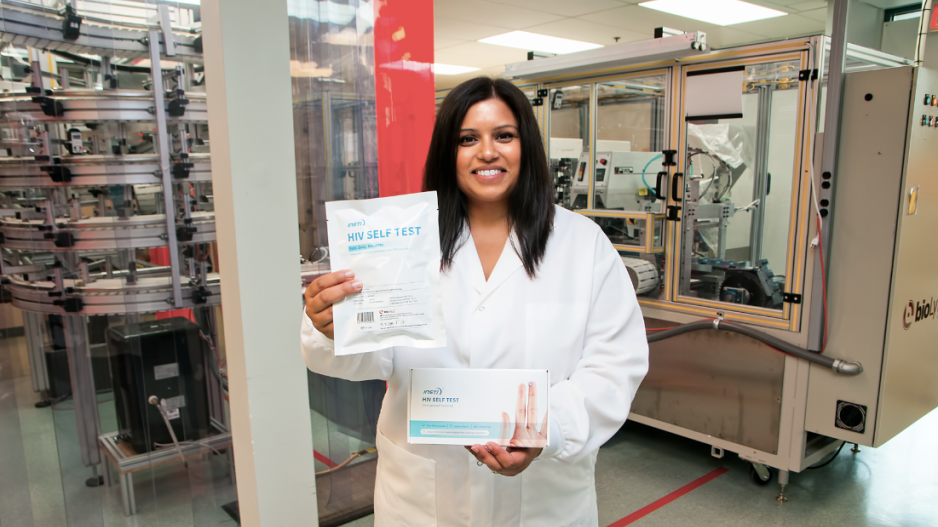Inside a London hospital last year, Prince Harry took a small prick to the finger to draw blood and sat back awaiting the results of his HIV test.
“Whether you’re a man, woman, gay, straight, black, white or whatever – even ginger – why wouldn’t you come in and have the test?” he told viewers watching him get tested live on camera on the British monarchy’s Facebook (Nasdaq:FB) page.
Within 60 seconds, the INSTI HIV test revealed Prince Harry had tested negative.
The Commonwealth connection between Prince Harry and the HIV test can be traced to Richmond-based BioLytical Laboratories Inc., which developed the point-of-care test the monarch used.
Its latest innovation, an HIV self-test that takes one minute to reveal results, launched in Europe late last year and in parts of Africa this year. While the minute-long point-of-care test requires users to attend a clinic or a hospital to have the testing done, the self-test can be done in one’s own home. Prices range from 26 to 29 euros ($38 to $43).
Rick Galli, BioLytical’s chief technology officer, said the company has been in discussions with Health Canada’s medical devices bureau about initiating a study for bringing the HIV self-test to the Canadian market.
“Depending on the scope and the size of the trials, these [clinical trials] can be several million dollars,” he said.
Instead, BioLytical is prioritizing markets in the developing world, such as Central America, South America and Asia.
BioLytical chief operating and financial officer Livleen Veslemes said the self-test is already gaining traction in Europe and Africa.
“On the commercial side, we’re meeting with large distributors, we’re meeting with our customers and we’re also launching the self-test into new countries for study,” she said.
A 2017 study conducted in Kenya showed promise for the African country, where 5.9% of the population has HIV. Between March and April, the Kenya Medical Research Institute examined 688 participants with varying levels of education and literacy in rural villages that might not have easy access to clinics where they could be tested.
When self-administered, the test was found to have negative readings that were accurate 98.89% of the time, and its positive results were 99% accurate.
While 57.1% of participants either had primary or no formal education, 97% said they found the test instructions easy to follow. Another 97% said they would use it again and 98% said they’d recommend it to a partner.
The INSTI test was originally meant for point-of-care use for community-based organizations before it expanded into hospitals, prisons, university health clinics and pharmacies. But Veslemes said budget cuts to health authorities throughout the globe meant not everyone was able to access the INSTI point-of-care tests so readily, creating an impetus to develop the self-test.
“It really lessens the burden on the health-care system when only those testing positive are going in for confirmatory testing.”
Meanwhile, Galli said the United Nations’ 90-90-90 initiative introduced three years ago to combat AIDS is also encouraging a lot of innovative testing models.
The initiative calls for 90% of people living with HIV to know their statuses by 2020.
“That has really spearheaded the emergence of self-testing to be another tool in the box,” Galli said.
@reporton



